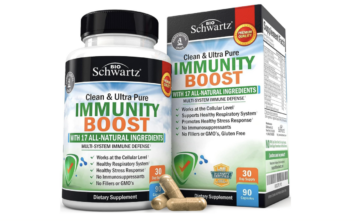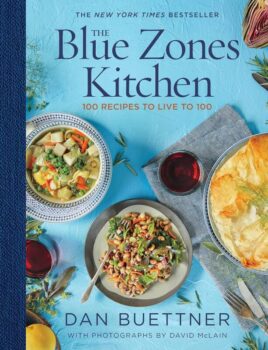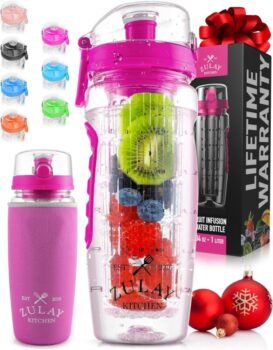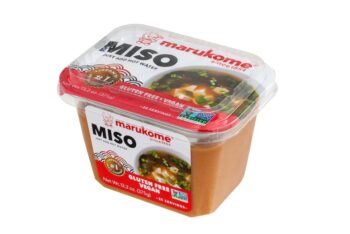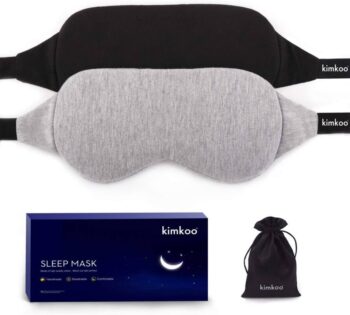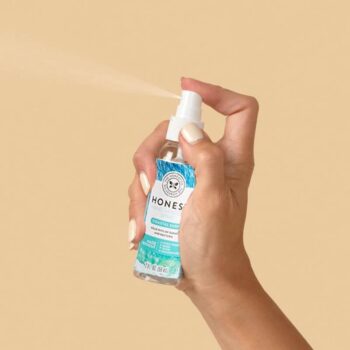Can you really boost your immune system? Here’s what experts say

The products and services mentioned below were selected independent of sales and advertising. However, Simplemost may receive a small commission from the purchase of any products or services through an affiliate link to the retailer's website.
Colder weather means more time spent indoors and gathering in close quarters with friends and family. Does it also bring on more colds, or is that just a myth? We spoke to a board certified doctor and physician nutrition specialist and two registered dietitian nutritionists who take a “food-first” approach to wellness to see what they suggest for helping us maintain optimum health during this time of year and year-round.
Seattle-based integrative registered dietitian nutritionist Ginger Hultin, owner of Ginger Hultin Nutrition and author of “Anti-Inflammatory Diet Meal Prep,” said there’s truth to the notion that people tend to get sicker this time of year.
“Potential reasons why include the fact that people spend more time indoors, closer to each other, and there’s evidence that colder air can also affect the healthy microbiome inside the nose, possibly lowering the immune system’s ability to protect against viruses or bacteria when we first encounter them,” Hultin explained.
Should You Boost Your Immune System With Supplements?
Products that claim they’ll help boost your immune system are everywhere. But should you use them?
“These have become so hot since the pandemic; you’ll see a lot of immune-boosting products sold in the winter,” Hultin said. “There is evidence that having enough nutrients like vitamin C or zinc is important for immune cell health, though more isn’t necessarily better.”
She works with clients to “help meet but not exceed” their needs, because so many products on the market offer megadoses that aren’t necessarily good for you, she said.
“For zinc and vitamin C specifically, there are actually some potential negative side effects to taking too much,” Hultin explained. “Vitamin C can cause cramping and diarrhea at high levels. Too much zinc can cause similar gastrointestinal symptoms and can also interfere with the absorption of other minerals like copper and iron.”
Of course, you should always check with your physician before adding a supplement of any kind to your routine.
Consider a Holistic Approach
Hultin explained that while there’s evidence to support meeting the need for certain nutrients that are associated with the immune system, and extracts like elderberry can be effective, her go-to approach is more holistic during the winter season.
She said you should ask yourself these questions: “How are you managing your schedule? Are you exercising and sleeping? Are you hydrated? Are you meeting your nutrient needs? How’s your stress level? What’s your viral exposure risk?”
“These aspects can be much more powerful for your health than any herbal or supplement,” Hultin said. “Those are definitely my second- or third-line recommendations.”
Include Different Ways of Supporting Your Immune System
While “boosting” your immune system might be considered a bit of a stretch, there are ways to support it.
Registered dietitian nutritionist and owner of The Lifestyle Dietitian, Jerlyn Jones, said people can influence and support their immune system by eating fruits, vegetables, whole grains, beans and nuts, and by getting enough sleep, doing daily exercise and managing stress.
Dr. Zhaoping Li, professor of medicine and chief of the Division of Clinical Nutrition at the University of California, Los Angeles, reiterated how important good nutrition is to supporting the immune system. She said the same goes for regular exercise and getting an ample amount of sleep.
Though the experts we interviewed did not endorse specific products, we selected the following well-reviewed items to highlight based on their general guidance to get active, eat properly, stay hydrated and remember to wash your hands often.
Exercise
Hultin said moderate exercise has a direct link to supporting immunity and Li explained that all activity counts. So, the key is finding a workout that’s both enjoyable and effective. If joining a gym or going on a run outside doesn’t excite you, try picking up a set of exercise bands to use with free YouTube videos. This way, you can squeeze in a full-body resistance band workout conveniently at home for very little cost.
Eat Healthy
“Nutrient-rich foods can fill nutrient gaps and empower people to support their immune system,” Jones said. “Choose a variety of fruits and vegetables, such as sweet potatoes, carrots, butternut squash, oranges and strawberries.”
She also suggested powering up “with good sources of protein like tofu, lentils, yogurt, tuna, eggs and milk, that provide essential nutrients to fight off invading bacteria and viruses.”
Picking up a good cookbook is a great place to start. “The Blue Zones Kitchen” features 100 recipes from areas all over the globe where many people have lived up to or past 100 years old. It boasts many recipes with whole foods, cooked with methods that are designed to help safeguard your health.
Stay Hydrated
Water helps your immune system function properly. While there’s no need to lug around a giant-sized jug, keeping a water bottle on hand can help you meet your daily needs. If drinking plain water feels like a chore, try infusing your drink with citrus slices or fresh berries for added flavor — there are products like the Zulay fruit infuser bottle that make it easy to do.
Protect Your Gut Health
Miso, tempeh, sauerkraut, kefir, kombucha and kimchi are brimming with gut-friendly probiotics that can help support gut health.
“Remember to eat prebiotics such as onions, leeks, dandelion, asparagus, bananas and garlic, which fuel your body’s probiotics so they thrive and survive in the gut,” Jones said. “Probiotics don’t work as well without prebiotics. You need both substances for gut health.”
She recommends consuming the right amount of dietary fiber a day — around 25-30 grams can ensure you receive health benefits.
Whipping up a bowl of miso soup is a quick way to give your body a dose of ingredient-packed nutrition. Studies have shown that miso, which contains probiotics, has been linked to anti-cancer properties and can help eliminate gastrointestinal diseases.
If you aren’t able to eat enough probiotics through your diet, Jones suggests looking for 3-5 grams of prebiotics in a daily dietary supplement, based on evidence from a study conducted by the International Scientific Association for Probiotics and Prebiotics.
Get Plenty of Sleep
We know it’s easier said than done, but getting ample shut-eye is worth its weight in gold regarding how it can support the immune system.
“Studies show that being sleep-deprived can cause the immune system to take a hit,” Hultin says. “Prioritizing sleep and ensuring that you’re getting the seven to nine hours that most people need is as important as ever during the busy winter season.”
Block out ambient light and sound with a good eye mask and set of earplugs to help you get a full eight hours of rest.
Wash Your Hands
Of course, we all know it, but sometimes when we’re out running errands and get hungry, it can be hard to stop and wash our hands in a sink. The solution? Pop a travel-sized bottle of hand sanitizer like this one in your bag, or keep one in your glove box.
Falling Short on Nutrition? Try a Multivitamin
“Making sure that you get enough immune-supporting nutrients like B vitamins, vitamins C and D, iron and zinc (among others!) is important. Deficiencies can cause a weaker immune response,” Hultin says.
A good catchall can be to take a multivitamin. While Jones says that the Dietary Guidelines for Americans (DGA) states that nutrition needs be met primarily from foods, it also highlights the depletion of several nutrients of public concern (vitamin D, calcium and potassium) in Americans 2 years old and older. However, remember to heed Hultin’s warning that “more isn’t necessarily better.”
“Americans may be meeting or exceeding their caloric requirements while falling short of meeting nutrient recommendations,” Jones said. “Fortified foods and micronutrient supplements may be useful in bridging the gap.”
We hope that practicing these healthy habits can help keep illness at bay this season and beyond.


